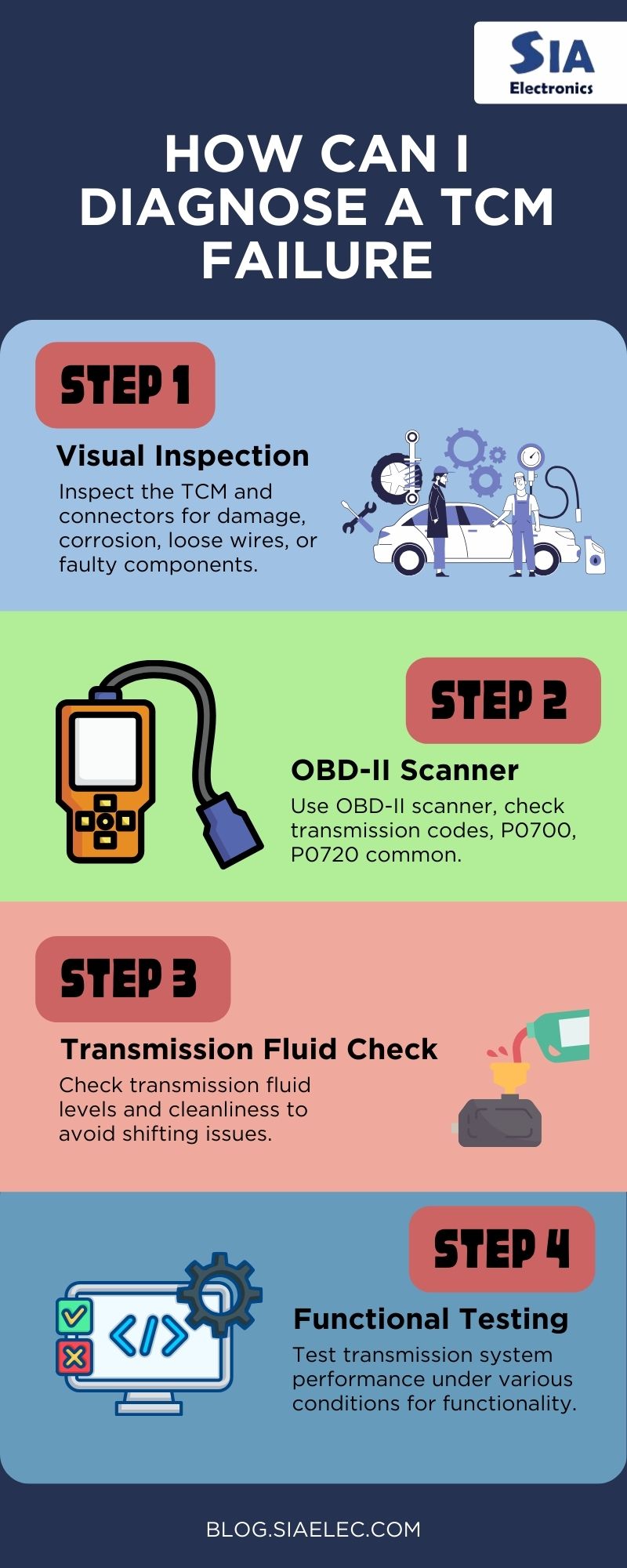Understanding TCM Failure Symptoms : A Comprehensive Guide
Learn to identify TCM failure symptoms with our comprehensive guide. Understand the signs and take proactive steps to ensure your vehicle's transmission operates smoothly and efficiently.
Learn to identify TCM failure symptoms with our comprehensive guide. Understand the signs and take proactive steps to ensure your vehicle's transmission operates smoothly and efficiently.
When it comes to maintaining your vehicle’s performance, understanding the role of critical components like the Transmission Control Module (TCM) is essential. The TCM is a crucial part of your vehicle’s transmission system, and its failure can lead to a range of issues that impact your car’s drivability and safety. In this blog, we’ll delve into what a TCM is, the symptoms of TCM failure, diagnostic steps, and the associated costs of repair or replacement.
By the end of this guide, you’ll have a comprehensive understanding of TCM failure and how to address it effectively.
The Transmission Control Module (TCM) is an electronic component that manages the operation of your vehicle's transmission. It uses data from various sensors to determine the optimal timing and method for shifting gears, ensuring smooth performance and efficiency.
A malfunctioning TCM can disrupt these functions, leading to poor transmission performance and potentially severe driving issues.
Recognizing the signs of TCM failure early can prevent further damage and costly repairs. Here are some common symptoms to watch for:
If you suspect that your TCM may be failing, it's important to take action quickly to prevent further damage. Here’s what you should do:
Diagnosing TCM failure involves several steps to accurately pinpoint the issue. Here’s a step-by-step guide:
If these steps indicate a TCM issue, further diagnosis by a professional may be required.
The cost of repairing or replacing a TCM can vary significantly based on several factors:
It's advisable to get multiple quotes from different service providers to ensure you receive a fair price for the repair or replacement.
Understanding TCM failure symptoms and knowing how to address them can help you maintain the performance and safety of your vehicle. By recognizing the signs of a failing TCM, performing accurate diagnostics, and seeking timely repair or replacement, you can prevent further damage and costly repairs.
At SIA Electronics, we specialize in re-manufacturing automotive electronic control modules and ECUs. With over 20 years of experience, we provide reliable solutions for all domestic and foreign vehicles, including mass air flow sensors, anti-lock brake computers (EBCMs), and hydraulic units. For expert assistance with TCM issues and other automotive electronic components, trust SIA Electronics to keep your vehicle running smoothly.
A TCM can last the lifespan of the vehicle if well-maintained. However, electronic components may fail due to factors like overheating or electrical issues, which can affect longevity.
Yes, if a TCM fails, it can lead to improper gear shifts and transmission overheating, potentially causing significant damage to the transmission system.
It depends on the severity of the issue and the overall condition of your vehicle. In many cases, replacement is preferred for long-term reliability.
Driving with a faulty TCM is not recommended as it can cause erratic shifting and potential damage to the transmission. It’s best to have the issue addressed promptly.
Regular maintenance, such as checking transmission fluid levels and addressing warning signs early, can help prevent TCM failure.
Look for service providers with experience in automotive electronics, read customer reviews, and seek recommendations to find a reputable technician for TCM repairs.
